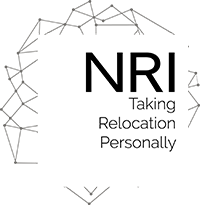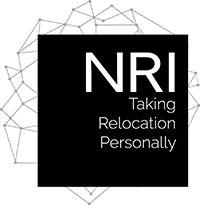In today’s competitive business environment, companies cannot afford to be complacent about their position in the market. Organizations that fail to constantly seek out ways to be better, know more, and move faster will quickly find themselves irrelevant. Global talent mobility is one of the keys to succeeding in this game.
Talent mobility is not new but the rules of the game have changed. Where mobility once meant relocating employees to new markets, talent mobility today touches all areas of the employee lifecycle. Whether it is succession planning, recruiting, or career development, mobility today encompasses many different roles.
Today’s mobility programs look beyond the bottom line in terms of measuring the success of a relocation. Instead, success is increasingly defined by how well the relocation meets the drivers and annual goals of the organization. This expanded focus puts additional pressure on HR departments to not only manage the relocation but also to ensure that the relocation is both strategic and successful.
Unfortunately, there is often a misaligned understanding between mobility efforts and larger organizational objectives. This can make it difficult for HR to synergize talent-oriented actions, such as recruitment and hiring, with organizational objectives, especially within larger companies.
A good place to begin alignment is by first identifying the barriers to alignment and creating long-term solutions. Increasingly, companies seeking to get the most out of their relocation program are strategically utilizing the assistance of mobility partners to help them relocate efficiently, research the feasibility of a relocation more effectively, and communicate better with all parties involved throughout a relocation.
Relocate Strategically
One of the most neglected areas of relocation is on the front end of assignments. Too often, candidates are selected based on length of tenure or based exclusively on work-related skills without giving adequate consideration to how well they will be able to adapt to the new location. When candidate selection is driven solely by performance-based criteria, the candidate may struggle to make the transition into their new role and culture.
A mobility assignment is often viewed by employees as a way to further their career path and an opportunity to hone and develop professional skills, but each candidate should be in the right place professionally and personally to adapt to the challenges that inevitably come with a relocation.
For example, an employee who has been with the company for many years might seem like an obvious choice for a new role in a new location. But if that employee has never had a leadership role, or has deep ties to their local community, that employee may not have either the required experience with “soft skills” or the professional maturity for a mobile assignment.
In this case, the experience and professional maturity of the employee might be a more important variable for consideration for relocation than actual time spent with the company. Additionally, before making an offer, hiring managers should take into account the candidate’s family needs, familiarity with the new location and culture and, of course, the employee’s feelings about the assignment.
Candidates often have concerns that they are not comfortable voicing in a job interview. A skilled mobility partner can engage the candidate with pre-employment screening to help HR avoid making a relocation offer to a candidate who may, at first, seem like an obvious choice but who might not be a good fit for a mobility assignment.
For example, does the candidate have young children or responsibility for a sick family member that may make a relocation difficult to manage? Is there a trailing spouse or partner who will need career assistance in the new location? If the candidate is being relocated internationally, does the candidate speak the language of the new country or understand the culture they would be operating in? Are there tax implications of the move that the employee and/or the company may not be aware of? Is the candidate genuinely excited for the opportunity or do they feel they can’t refuse to relocate?
An employee who feels adequately prepared and supported for their new assignment will adjust to their new location more quickly, will be able to be more focused throughout, and will be able to spend more time working to achieve strategic talent management goals.
Prioritize and Research
Mobility assignments typically make up a small percentage of HR’s responsibilities – and that may be precisely the reason why mobility is so often out of alignment with HR’s priorities.
Allocating additional resources to mobility would solve this problem, but most HR departments don’t engage in relocating employees at a volume sufficient to justify full-time staff to oversee the many moving parts of relocation in-house.
A trusted mobility partner helps alleviate this problem by supplementing an HR department’s limited resources with industry-specific personnel to provide expertise in areas such as the logistics of moving household goods and valuable items, providing location tours of the new area, home finding, buying the new home or selling the old one, finding suitable schools, and helping the family integrate into their new neighborhood.
Since relocated employees are typically selected for their leadership potential, or because they possess a specific knowledge or skill set that is needed in the new location to contribute to the success of the company, ensuring that their transition to their new location is as smooth as possible is critical to the success of the employee as well as the success of the overall goal of the relocation. A smooth transition helps the employee focus on their new responsibilities instead of the demands of the relocation itself, and utilizes the employee to their fullest potential.
Communication Matters
In mobility, as in any area of business, effective programs rely on communication between the people in charge of creating an agenda and the people in charge of implementing that agenda.
In a relocation assignment, these roles fall, respectively, to the HR department and the employee. As long as the principals in these areas are on the same page, strategy goals can remain at the forefront of the assignment.
However, in many companies, HR’s resources are constrained, especially if the company does not do a large volume of relocations, and the opportunities to engage in dialogue with relocating employees and to build relationships with relocated employees are limited. As a result, communication suffers – and when communication suffers, the implementation of strategic goals suffers.
Lack of communication means that employees have to make major decisions for themselves and their family on their own; decisions which can be overwhelming at any time, but especially when the employee is moving to a new location.
A mobility partner such as NRI Relocation can expand HR’s capabilities during a relocation to provide a trusted referral for multiple mobility resources. NRI also provides a personal, main-point-of-contact communication resource for both employees and HR thereby relieving HR of the many small demands of most employee relocations.
Keeping relocating employees in direct and regular contact ensures that they never lose sight of the organizational mission and always feel like they are supported by their organization. Utilizing a trusted mobility partner also opens talent management to a better understanding of relocated employees’ needs, concerns, and potential for future contribution.
The process of selecting relocation candidates from an internal talent pool – or recruiting them externally – is different from the traditional process of hiring a new employee or promoting an existing employee. A successful relocation takes a team – a team that incorporates expertise in HR, relocation, cultural issues, tax, family needs, immigration and more – to effectively support an employee and their family moving to a new location and a new future.
Joining forces with a trusted mobility partner like NRI Relocation helps your HR department build a team with the depth to take on the challenges of mobility. To learn more about the evolving role of mobility today and what it could mean to your talent acquisition and talent retention strategies for your company, please Contact Us.


